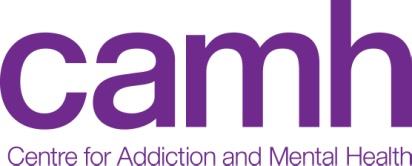
VAGUS Insight into Psychosis Scale
Non-Confidential Summary
Market Need
Schizophrenia is a debilitating mental illness that impairs cognition and is characterized by hallucinations and delusions. Global lifetime prevalence of schizophrenia is estimated to vary from 3 to 6 people per 1000. Impaired self-awareness of disease, termed “insight” into illness, is common in Schizophrenia Spectrum Disorders. This means that patients commonly do not know if they are currently experiencing an episode of psychosis, or they do not attribute psychotic delusions to having the disease. Lack of insight is known to have a significant negative impact on medication adherence and treatment outcomes. Therefore, accurately assessing insight is a significant step towards improved planning, administering and establishing compliance for treatments. Existing scales vary in the number of questions, scale items and what dimension of insight they are assessing.
To this end, there is a need for an insight assessment scale:
- With a broad range of responses
- That can capture subtle changes in insight over brief periods of time
- Is both clinician-rated and self-reported
Technology Description
Our researchers have developed an easy to administer insight scale with both self-report and clinician-rated versions that would be sensitive to small changes in insight over brief periods of time, and assess the multidimensionality of insight. A 10 item self-report (VAGUS-SR) and a 5 item clinician-rated version (VAGUS-CR) of the scale were designed, based on previously validated scales, to measure the dimensions of insight into psychosis. Both scales are efficient, each taking approximately 5 minutes to administer/complete. All scale items utilize 10-point Likert scales to capture subtle changes in degree of insight into illness.
Stage of Development
During clinical assessment, the self-report and clinician-rated versions demonstrated good validity, reliability, correlation with existing scales and had excellent inter-scale reliability (r=0.685, p < 0.001). The scale has been independently validated, and is also published as The VAGUS insight into psychosis scale – self-report and clinician-rated versions (Gerretsen et al., 2014). An electronic version is under development, which will facilitate data storage for research studies and clinical use.
Advantages
- Specific to the quantitative assessment of impaired illness awareness or illness denial
- User friendly tool with the capacity to detect small changes in insight scores with the use of 10-point Likert scales for each item
- Offers a screening mechanism to determine which patients are most suitable for medication adherence programs or interventions to enhance medication adherence.
Notable Publication
Gerretsen et al., Psychiatry Research 220; 2014
http://illnessawarenessscales.com
Business Opportunity
The Centre for Addiction and Mental Health is seeking partnerships with pharma, biotech and hospitals who may be interested in licensing this scale for use in clinical trials and patient assessment.
For more information contact:
Dr. Klara Vichnevetski
Director, Industry Partnerships & Technology Transfer
(416) 595-6056
Centre for Addiction and Mental Health
33 Russell Street, Suite 4039
Toronto, ONT, CDA M5A 2S1
